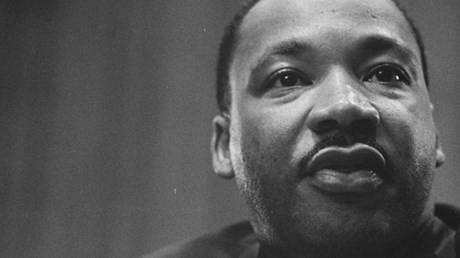Dr. King had a hope that was out of this world.

Today, we remember the life and legacy of Rev. Dr. Martin Luther King Jr.—a man who sacrificed much to advance the causes of the civil rights movement in the mid-twentieth century.
It was a time in history when most African Americans living in the states weren’t given their due as U.S. citizens or image bearers of God.
After the Civil war in the late 19th century, Jim Crow laws were established in the south keeping them from accessing the same basic public goods (education, public facilities etc.) as whites living in their town. In addition, voting rights were limited by voter literacy tests that were clearly put in place by states as a means to prevent African Americans from getting to the polls each election cycle.
But King saw all of this—a messy mass of racism, discrimination, and untold abuses of power—and still could somehow utter the words, “I Have a Dream.” His dream was founded on a scriptural understanding of justice and our response to the Kingdom of God at hand. In his famous, often quoted, ‘I Have a Dream’ speech, King referred back to the prophesies of old, calling for a day to come when justice would “roll on like a river” and righteousness like a “never failing stream” (Amos 5:24).
For years, King paddled up that stream with the currents of culture and legal precedent pressing towards him. He dealt with insults, abuse, imprisonment, and ultimately death for the sake of the cause he cared for so deeply. Despite the many forces fighting against King and his companions, their relentless pursuit of justice ultimately gave way to many of the governmental and societal reforms they had hoped for.
What about White Clergy?
King had to push other (white) ...
from
http://feeds.christianitytoday.com/~r/christianitytoday/ctmag/~3/r_PWM1jjWuc/eschatological-dream-of-martin-luther-king-jr.html
No comments:
Post a Comment